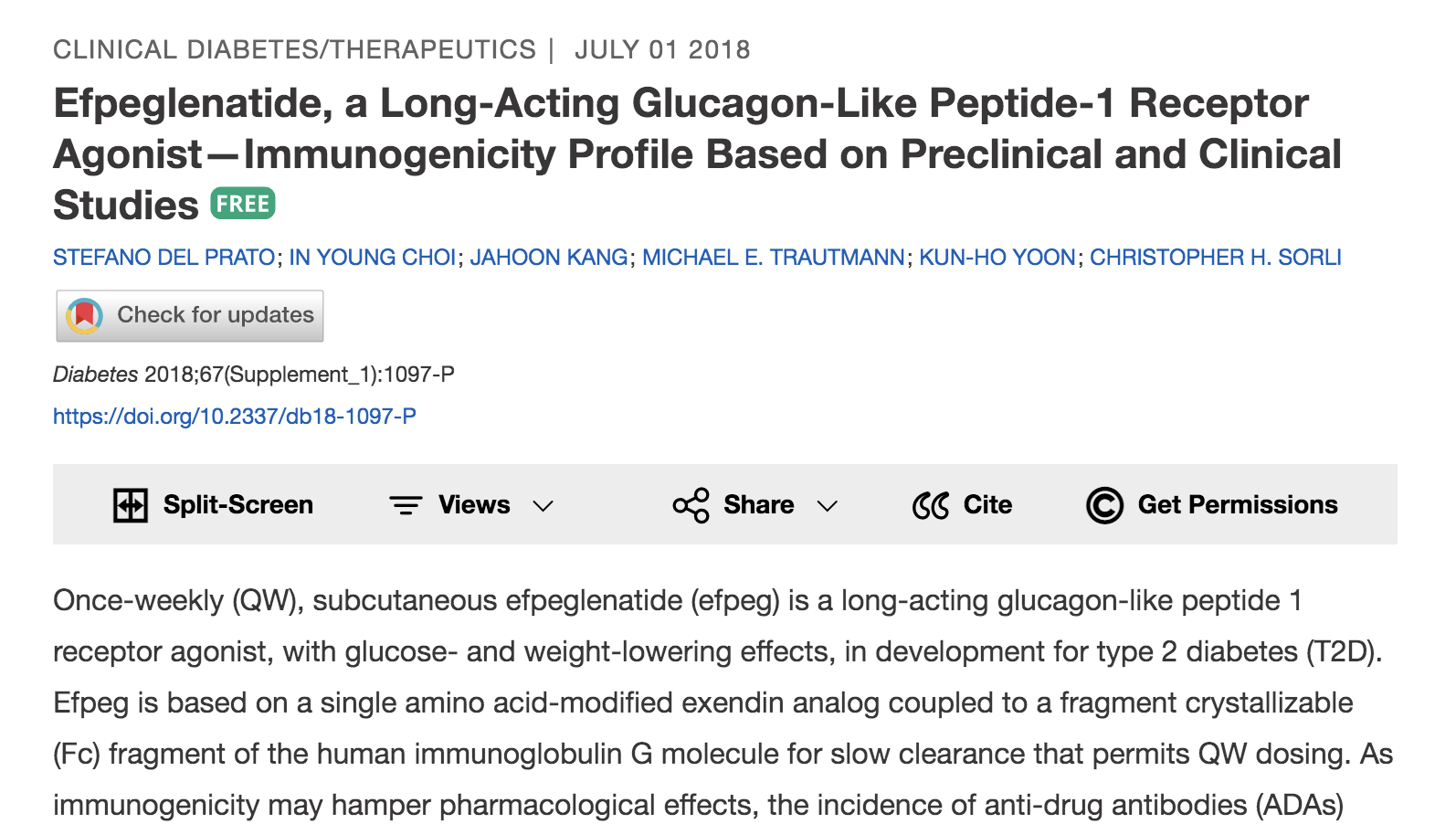About This Article
Once-weekly (QW), subcutaneous efpeglenatide (efpeg) is a long-acting glucagon-like peptide 1 receptor agonist, with glucose- and weight-lowering effects, in development for type 2 diabetes (T2D). Efpeg is based on a single amino acid-modified exendin analog coupled to a fragment crystallizable (Fc) fragment of the human immunoglobulin G molecule for slow clearance that permits QW dosing. As immunogenicity may hamper pharmacological effects, the incidence of anti-drug antibodies (ADAs) was assessed in efpeg studies. In a cynomolgus monkey study, no primate developed ADAs (Table). In clinical dose-finding studies (efpeg exposure <3 months), no treatment-emergent ADAs (TE ADAs) or in vitro neutralizing antibodies (nAbs) were detected. Primary and immunogenicity endpoints from efpeg QW clinical studies (>3 months) are shown (Table). In patients with T2D or obesity, efpeg QW led to significant reductions in glycated hemoglobin and body weight, respectively, with low immunogenicity (<20% of patients with TE ADAs) and no nAbs. Analysis of individual patient data suggest that presence of ADAs did not impact efficacy and no serious or severe immunogenicity events were reported. Overall, the modification of exendin and Fc conjugation in efpeg were associated with low development of ADAs, with no apparent immunogenicity effects on pharmacological action.




